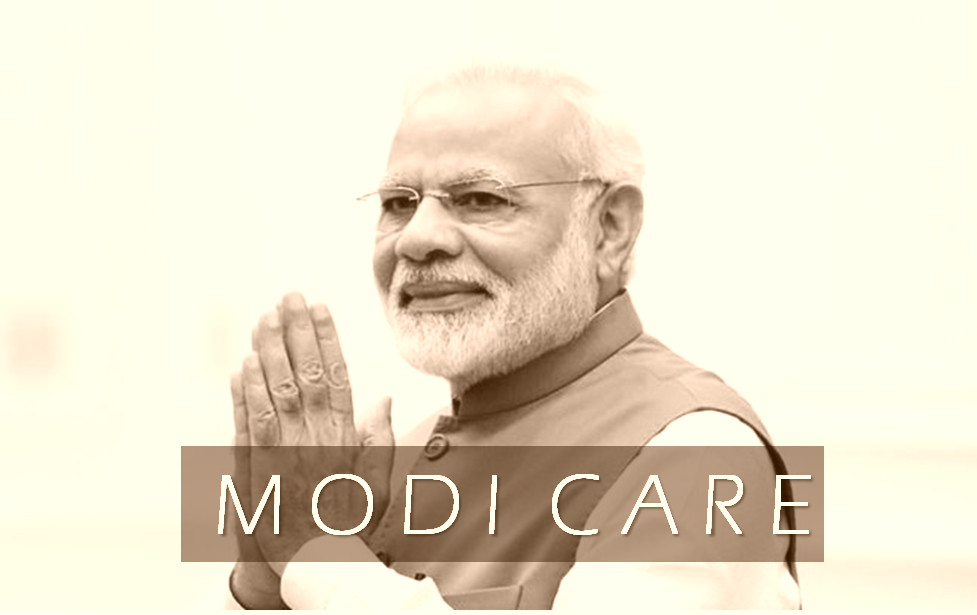Healthcare sector is one of the most underdeveloped industries in India. The services are highly concentrated in urban areas while rural areas still lack basic infrastructure for healthcare. Even in urban areas, the services are available to only upper class who could afford private healthcare at expensive rates. In seven decades of independence, no serious effort has been made by the government to universalize healthcare. The constitution of India presents country as welfare state, universal school education and universal healthcare services are elementary for welfare state but still little efforts were made to provide in the 20th century. However, 21st century was little better for citizens of the country, elementary education was universalized in the first decade and now Modi government aims to universalize healthcare through Ayushman Bharat scheme.
Modi government launched Ayushman Bharat scheme on September 23 from Jharkhand. Under the scheme, Modi government will provide 5 lakh health insurance cover to 50 crore people, which is nearly 40 percent of the population of the country. Besides the insurance cover, the government will create 1, 50,000 wellness centers across the country under the Ayushman Bharat scheme. The wellness centers which include Sub-centres, Primary Health Centers (PHC) and Community health centers (CHC). The families which will benefit from the scheme will be identified from the Socio-Economic and Caste Census (SECC), 2011 data. “The scheme will create considerable employment opportunities … It will create 10 lakh jobs in health and insurance sector,” said Indu Bhushan, the CEO of Pradhan Mantri Jan Arogya Yojana at an event organized by Assocham.
According to the draft of National Health Policy, “Over 63 million people are faced with poverty every year due to healthcare costs alone. It is because there is no financial protection for the vast majority of healthcare needs.” The poor and needy have to sell their assets like jewelry in order to get quality healthcare, or land up borrowing money from sahukars who levy heavy interests. The share of non regular expenditure on healthcare as a proportion of total household monthly per capita expenditure is 6.9 percent in rural areas and 5.5 percent in urban areas. “Six crore people in India go into poverty because of out of pocket expenditure on health … out of pocket expenditure is 2/3rd of total health expenditure in the country,” said Bhushan at the event.
The National Health Protection Scheme (NHPS) will offer treatments at 20 percent lower rates than the Central Government Health Scheme (CGHS) and Rashtriya Swasthaya Bima Yojana (RSBY) under what is touted as the famed Modicare. Indu Bhushan, chief executive of Ayushman Bharat had previously said, “CGHS and Rashtriya Swasthya Bima Yojana (RSBY) rates have been used as reference prices for fixing the rates under the Modicare scheme. However, the rates under the new scheme are on an average 15-20% lower than that of CGHS.” CGHS is the existing medical care scheme for central government employees started in 1954 under the Ministry of Health and Family Welfare, while RSBY was started in 2008 by the Manmohan Singh government to provide health insurance coverage to people living Below Poverty Line (BPL). All of the states and union territories of the country except Kerala, Telangana, Odisha and Delhi, has come on board to implement NHPS. Kerala, Telangana and Odisha already have their own healthcare insurance. However, NHPS could have further benefited the people of the states but these states fear that NHPS could provide political mileage to Modi government which they do no want them to get. Delhi government did not join the scheme for purely political reasons, the ego of ‘Dharna Purush’ clashed with interest of the people of Delhi and he decided to opt for his ego.
Modicare is the largest public healthcare program in the world. It is also one of the cheapest and most efficient schemes, its success provide a template to all countries with similar per capita GDP to provide universal healthcare. If this happens Ayushman Bharat will not only be a service to the country but to humanity around the world.
